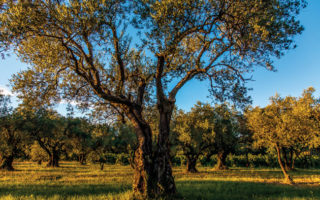Smallholding Vs Self-sufficiency
Advice


What are the differences and similarities of Smallholding vs Self-sufficiency? The vast majority of self-sufficient homes and communities do practice smallholding. In fact due to John Seymour’s book ‘The Complete Guide To Self Sufficiency’ the two are almost synonymous. However the two are entirely separate things.
What is a smallholding?
Cambridge Dictionary: ‘An area of land that is used for farming but which is much smaller than a typical farm.’
Smallholding is not a necessity for self-sufficiency if you accept the above definition of a smallholding, which implies it is just small scale farming.
What is Self-Sufficiency?
Cambridge Dictionary: ‘Being able to provide everything you need, especially food, for yourself without the help of other people.’
Providing your own food is possible on a much smaller scale than that of a smallholding if you are happy to eat only white meat and or vegetables. Breeding just poultry or rabbits for meat and establishing a large vegetable patch is all you need do to go a long way towards providing your own food for a small family. I would not however promise you a satisfying variety of dietary components! I would suspect most people would become very discontented on such a limited diet.
A smallholding, however, could offer you a the chance to have a diet that is both varied and satisfying – and home grown. This is however not all there is to self-sufficiency – we humans do not live by bread alone. We need shelter and water too; these will not necessarily come with smallholding unless you choose your holding well. Efforts to build a house or renovate an existing one as well as obtaining a plentiful and permanent supply of water are both requirement of self-sufficiency, and these are both skilful pursuits.
Providing for ourselves
For most us, being self-sufficient means trying to provide for ourselves as much we can or want to, and people do this to a greater or lesser degree depending on the kind of life they are after.
Many of the skills required to be self-sufficient are difficult to obtain by just reading. Often you will need to undergo trial and error which will invariably mean the financial cost of the error and waste of material. It will also, at some stages, require you to gain the skills by co-operation with others or even paying for others to do the work for you, either in kind or by an exchange of the products of your smallholding efforts.
Remember in all your efforts to become either partly or completely self-sufficient, what you are doing is nothing new; many have come before you. Often the old ways can be more helpful than the modern – hand tools cost less and work without expensive electricity. Make everything you can yourself, buy as little as is possible and choose carefully. If it can’t pay for itself don’t buy it.
Second-hand is good!
My wife and I have surrounded ourselves with second-hand solidly made devices that pay for themselves quicker, do the job adequately and in many cases better. Our cream separator is an antique; its hand operated so no electricity is needed and it works well. Fiona makes ice cream, we both make butter and the cream: these are great sellers as well as being fantastic to eat ourselves. The cream separator paid for itself in one week of operation. That’s self-sufficiency.
Contrast that against perhaps a new tractor even a modern mini tractor costing 6000€ plus running costs; even if it only cost 50€ per month to run over ten years that’s a total of 12000€. That’s 1200€ per year you need to earn over and above your living costs. Will it pay for its self? As a smallholder you may not even ask yourself this question but as self-sufficient smallholder you will have to. In actual fact if you have any intentions towards self-sufficiency you will need to ask yourself ‘will it pay for itself?’ each and every time you purchase a piece of equipment.
In conclusion my own self-sufficient efforts are centred on smallholding for an income as well as providing for our dietary needs. I am also a Woodturner and hope to gain some income from that too. However it is possible to be self-sufficient from a variety of pursuits that are not centred on smallholding, any self-employment combined with good financial home management and gardening could produce the same result.
Steve Hanson
Share to: Facebook Twitter LinkedIn Email
More in family, food, garden, guides, land, people, work
By FrenchEntrée
Leave a reply
Your email address will not be published. Required fields are marked *



